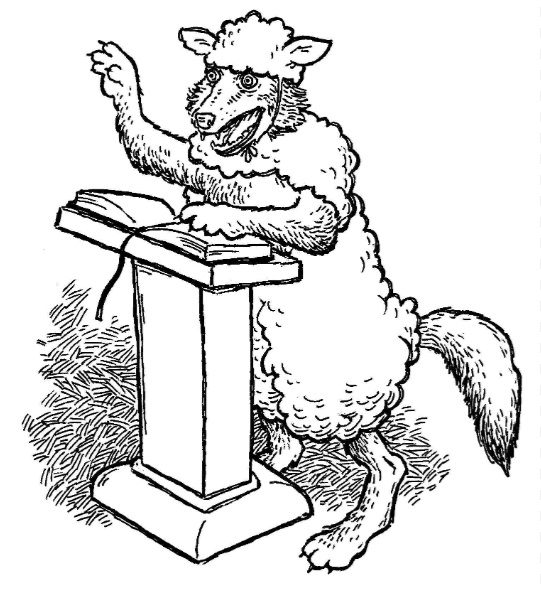“Michael Lofton: Come Back Home!” – Theological and Pastoral Critique
Introduction to “Loftonism”
Father Jason Charron begins his video by defining a phenomenon he calls “Loftonism” – this is, as he says, “a movement within the family of entertainment, within the genus of YouTube comedy, a species of ironic self-parody.” This definition already sets the tone at the beginning – Charron does not look at Lofton as a serious theologian but as an entertainer who unconsciously parodies himself.
Key characteristics of “Loftonism” according to Charron:
- Incontinence in filming – up to six videos daily
- Rhetorical deception with well-meaning audience
- Combination of buffoonery and hubris (pride)
- Relativizing genuine differences as insignificant
- Complete unconsciousness about the self-parody
Biblical and Theological Foundations of the Critique
1. Critique of New Converts in Leadership (1 Timothy 3)
Father Charron draws a strong biblical argument from 1 Timothy 3 where Saint Paul warns: “not to ordain a recent convert lest he become conceited and fall under the same judgment as the devil.”
Charron’s application is clear: “If you give someone a forum before hundreds of thousands of people, won’t they become conceited and won’t the devil be interested in their deception just because they are laypeople? No, that is absurd.”
2. Lofton’s Denominational Journeys
Charron systematically lists Lofton’s past through denominations:
- Dissolute lifestyle
- Non-denominational
- Baptist
- Presbyterian
- Latin-rite Catholic
- Orthodox
- Anglican (Ordinariate)
- Byzantine-rite
He concludes ironically: “Where will this train stop? But now he will set up his microphone and camera in his basement and start preaching solus magisterium pontificum from Louisiana, just as his father Jimmy Swaggart long before him preached sola scriptura.”
Theological Critique of Methods
1. Cryptotextualism vs. Patristic Theology
Charron presents a devastating critique of Lofton’s method:
Traditional approach: “The theology of the church fathers was entirely a commentary on Sacred Scripture. When you read patristic theology, it is completely imbued with Sacred Scripture.”
Lofton’s method: “What we now see from people like Michael Lofton is more similar to Joseph Smith, the founder of Mormonism… These self-appointed theologians go line by line through texts of popes and councils without ever entering into the biblical passages upon which they are built.”
2. Anti-Byzantine Theology
Particularly sharp criticism relates to Lofton’s affiliation with the Byzantine tradition:
“Lofton’s theology is completely anti-Byzantine, even anti-Latin. For a man who claims to represent Byzantine Catholicism, he certainly does not do theology as the Byzantines would ever have recognized.”
Charron even composes verses: “Lofton professes Eastern Catholic creed, yet his theology in essence fails to heed neither Eastern in spirit nor Latin refined but a caricature of the manualist crude and confined”
Pastoral and Spiritual Critique
1. Lack of Spiritual Life
Charron poses the key question: “Michael, do you spend as much time listening to God in the silence of your heart as you speak about him into your microphone?”
If the answer is no, says Charron: “Woe to you! You cannot, Michael, give to others what you yourself do not possess.”
2. Critique of Business Model
Charron accuses Lofton that his business model “is not so much based on truth as on generating conflict” and that “there seems to be a hint of a cult of personality.”
He is particularly sharp toward commercialization: “At that point you are not a physician applying Christ’s balm, but you are a snake oil salesman generating controversies to attract clicks.”
Defense of Traditional Catholics
1. Historical Precedents of Papal Criticism
Charron gives an extensive list of saints and theologians who justifiably criticized popes:
Saint Athanasius vs. Pope Liberius – resistance to a pope who under pressure signed a semi-Arian formula
Saint Hilary of Poitiers vs. Pope Liberius – refusal to recognize the pope’s lapse into semi-Arianism
Saint Vincent of Lérins vs. Pope Sixtus III – criticism of popes for initial sympathizing with Nestorians
Saint Catherine of Siena – encouraging the pope to return the papacy to Rome
Pope John XXII – a whole litany of theologians opposed his teaching that the blessed do not see God until the last judgment
Cardinal Cajetan vs. Pope Clement VII
Saint Robert Bellarmine – resistance to the pope’s attempt to publish an erroneous version of the Vulgate
Pope Honorius – condemned by an ecumenical council for neglecting the defense of orthodoxy during the Monothelite heresy
2. Modern Application – Case of the Ukrainian Church (1991)
Charron gives a powerful contemporary example when Rome sent delegates to Ukraine in 1991 to pressure church leadership to yield to the demands of the communist Moscow Patriarchate. Metropolitan Vladimir Sternyuk “courageously walked out of the room – he resisted Peter to support Peter.”
Defense of Bishop Strickland and Others
1. Example of Saint Hippolytus
Charron poses a challenge to Lofton: “Michael, what are we to make of the church’s encouragement to venerate Saint Hippolytus? Do you raise your voice against the Church or do you submit to the Church?”
He emphasizes that Saint Hippolytus was an anti-pope, but is still a saint, and his writings inspired new Eucharistic prayers after the Second Vatican Council.
2. Standard for Bishop Strickland
“If your mother the Church can recognize Saints Hippolytus, Robert Bellarmine, Hilary of Poitiers, Athanasius, Vincent of Lérins, Catherine, Paul as saints, can you not extend that same standard to Bishop Strickland who has simply raised his voice in a respectful tone against things that are clearly concerning to honest observers?”
Defense of Eminent Theologians
1. Cardinal Cyprian and Cardinal Dulles
Charron accuses Lofton of “boldly accusing Saint Cyprian of holding to a heretical form of ecclesiology and by implication attributing error to the late Cardinal Avery Dulles who believed there was a place for Saint Cyprian’s ecclesiology in modern theology.”
2. Dr. Ed Feser
“I think he owes apologies to those who actually understand the Magisterium like Ed Feser. You need to distinguish levels of authority in authoritative teaching in the Magisterium.”
3. Father Thomas Weinandy
Particularly strong defense of Father Weinandy:
“Father Weinandy is a man you should greatly respect. He earned his doctorate in historical theology at King’s College 50 years ago. He taught at Oxford, Georgetown, Mount St. Mary’s, Franciscan University… he is a member of all significant theological societies… for eight years he was executive director of the Secretariat for Doctrine and Pastoral Practice at the USCCB.”
Charron’s conclusion: “Given all this, for you, Michael, on your fifth or sixth or seventh denomination, to criticize Father Weinandy is rich. It is intemperate, it is acerbic, it even seems corporeal.”
Final Call to Repentance
1. Comparison with Great Theologians
“Michael, son, with your embryonic understanding of theology, you dare to cast aspersions on the lifelong devotion of your elders like Patriarch Shevchuk, Cardinals Zen, Burke, Müller, Bishops Strickland, Schneider, Father Weinandy… it is like watching a clown in a Shakespearean play.”
2. Final Call
“My prayer is that you return from the precipice. Your talent could be used for good. Leave the dark side, son.”
“Instead of using your gifts for the service of God’s kingdom, you are very quickly becoming the Jerry Springer of Catholic YouTube – a desperate attempt at relevance by wrapping yourself in the sacred garb of a faith you could not hope to understand in 80 lifetimes.”
3. Final Advice
“Take your rationalism, your ultramontanism, pride, all of that, take your seasonal musings and instead, son, just pray the Jesus Prayer. Begin anew. It will do you and everyone else a lot of good.”
Conclusion: Theological Precision of the Critique
Charron’s critique of Lofton is deeply rooted in:
- Biblical foundation – 1 Timothy 3 about new converts
- Patristic tradition – how theology should be done
- Church history – legitimate precedents for criticizing hierarchy
- Pastoral approach – concern for spiritual life and formation
- Ecumenical understanding – respect for Eastern and Western tradition
This critique is not superficial polemic but profound theological analysis of problems with Lofton’s approach which, according to Charron, harms both traditional Catholics and Lofton himself. Charron’s call “Come back home” is a genuine pastoral call to conversion and deeper spiritual life.



